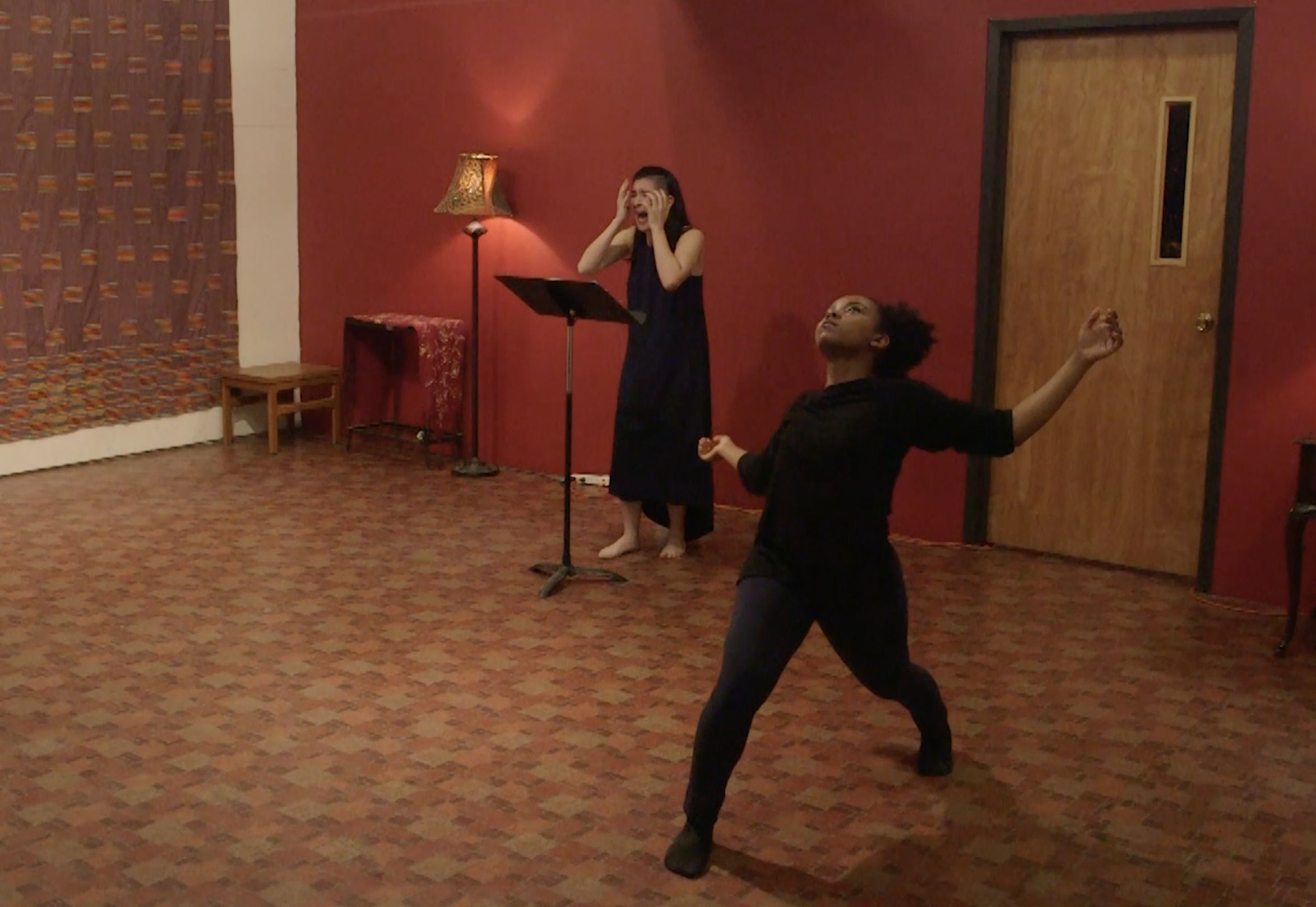
Recitations in Movement
Stephanie Lamprea, soprano, and Laila J. Franklin, dancer and choreographer, create and present a collaborative performance of Georges Aperghis’ Recitations. This theatrical experience seeks to express the many facets and sufferings of domestic abuse victims through the interaction between movement and voice. Proceeds and video access are donated to Rosie’s Place in Boston, MA. Rosie’s Place does incredible work towards empowerment to obtain safety, equality and justice – its position for these qualities as social rights and basic human needs, along with its numerous resources that make change possible, are all a full-fledged cause which we believe in and are honored to donate to. If you would like to see the full performance, make a donation of any amount to this GoFundMe link, which sends proceeds directly to Rosie’s Place, and you will receive a copy of the performance.
We have chosen Aperghis’ Recitations to express this cause for its daring musical techniques, extraordinary drama and artistic flexibility. Recitations, written in 1973, is a 40-minute work for solo voice. Divided into 14 movements, this piece breaks down traditions of music and theater through atonality, extended technique (including operatic singing, speaking, sputters and screams), puzzles and repetitions. The text is derived from the French language but the translation is meaningless and nonsensical as it groups random words and even breaks down words to random syllables. We are incorporating contemporary dance into the performance of this work as a means to materialize a full drama through multiple mediums. In some movements, the singer and dancer will perform separately, and in other movements, their art will be collaborative and even physically dancing together. In erasing traditions of sound and performance, this work provides the unique opportunity to express complicated and emotional experiences such as that of an abuse victim.
In alignment with the Puffin Foundation’s mission to educate the public on topical issues through art, we hope that our performance provides an aesthetic (aural and visual) tangibility and understanding of an experience that is often silenced by fear. As contemporary artists and fellow advocates of social justice, we believe that the expression of issues through art is a necessary voyage to provide audiences awareness and empathy for our fellow man or woman. Additionally, we feel that deeper empathy can lead to calls of action and advocacy through the support of organizations like Rosie’s Place.
